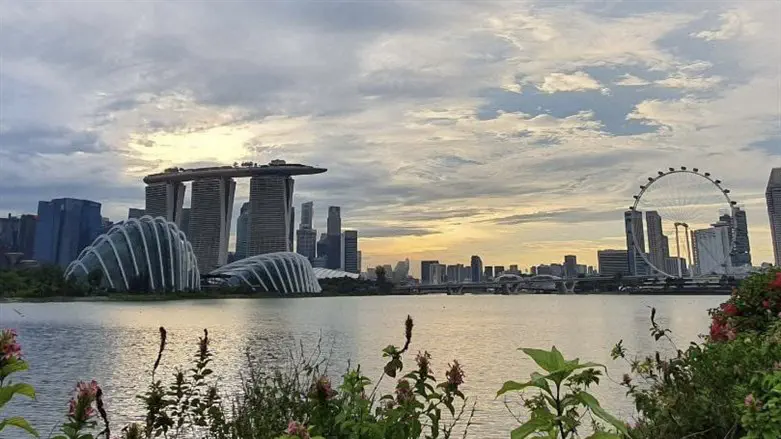
The ASEAN (Association of Southeast Asian Nations) is a political and economic union consisting of 10 nations in Asia. Like the European Union (EU), the different nations have varying policies and laws and so does their relationship with Israel. Nevertheless most of them do have a good relationship with Israel and yet there is additional roadway to pave in terms of future cooperation.
ASEAN emerged in 1967 when 5 nations - Malaysia, Indonesia, the Philippines, Thailand and Singapore came forth together with the goal to foster trade ties and maintain peace with their neighbours in the Cold War era. Today, the bloc has doubled in size and comprises 10 nations that are a mix of governments ranging from monarchies, communist states and democracies. It has over 600 million people along with a very diverse linguistic and religious landscape.
Of all the ASEAN nations Singapore and Philippines probably have the best relationship with Israel. Singapore is a highly developed first world nation. During the early years of Singaporean independence, they sought assistance from Israel to build up their own army that has also instituted conscription.
In 1947, the Philippines was notably the only Asian nation among the 33 others that voted in favour of the resolution for the establishment of the state of Israel. Decades later, ties remain strong and The Philippines has 30-50 000 foreign workers in Israel and many work as caregivers for the elderly. Then president Rodrigo Duterte visited Israeli in 2018. The most traded commodity going both ways is electronics. In addition, the Singaporean and Philippines militaries both use Israeli military equipment
Most ASEAN nations do not have heavy involvement in the Israel-Palestine Arab conflict and seem to maintain a more neutral stance.
Indonesia, Brunei and Malaysia don’t officially recognise Israel due to their pro-Palestinian Arab stance probably stemming from their Islamic heritage. But since the Abraham Accords have geared up in full swing, chances are that in due course, more favourable ties are possible. And some trade occurs regardless of all these factors.
Thailand is a major tourist hub and has received a lot of Israeli tourists throughout the years. East Timor and Papua New Guinea are observer states. Papua New Guinea recently opened up an embassy in Jerusalem.
Cambodia and Laos do not have Israeli embassies, but they do not hold animosity either, or so it seems.
Vietnam is a unique case - in the 1970s, Israeli prime minister Menachem Begin gave asylum to around 200 Vietnamese refugees during the refugee crisis caused by the Vietnam war and they are the largest group of Buddhist citizens of Israel. Some have even moved back to Vietnam in recent years. The two nations signed a free trade agreement in July to enhance bilateral trade. Such trade may see the exchanged items end up in other markets elsewhere and thus new cooperations to boost.
Cooperation can assist both in terms of agricultural innovation, trade, business, security ties and several other fields yet to be discovered. ASEAN has been credited by many as one of the world's major influential international organisations and a global powerhouse for regional trade.
Israel is not among ASEAN’s top 10 trading partners, but the similar sized Taiwan and Hong Kong are. With Israel’s high GDP, it is a possible economy to tap into for enhancing exchanges.
Malaysia once proposed an ASEAN Plus Three - meant to now include Japan, China and South Korea and the move was made in an effort to counteract US influence in the region. This did not happen. But if the bloc chooses to forge ties with external nations for free trade or other cooperation, it could be beneficial for both in the future.
Unlike the EU, the ASEAN does not have a common currency Euro or travel policy (like the Schengen Area).
The Southeast Asia region has had historic Jewish presence. Jewish traders of Portuguese and Iraqi origins came in the 16th-18th centuries. However, it is possible that Jews from the Middle-East or India may have visited or lived here long ago, given the fact that the region has seen many external visitors historically from both these places. This is evident in Cambodia and Bali in particular.
So, while Israel builds ties with the Asian nations individually, maybe it is time to for a free trade agreement or other business ventures that expand cooperation with ASEAN as a bloc due to the potential benefits for both sides.
Avi Kumar is a Holocaust historian from Sri Lanka. He speaks 11 languages and has widely traveled across the world. He writes about a myriad of topics ranging from wildlife, history to travel.